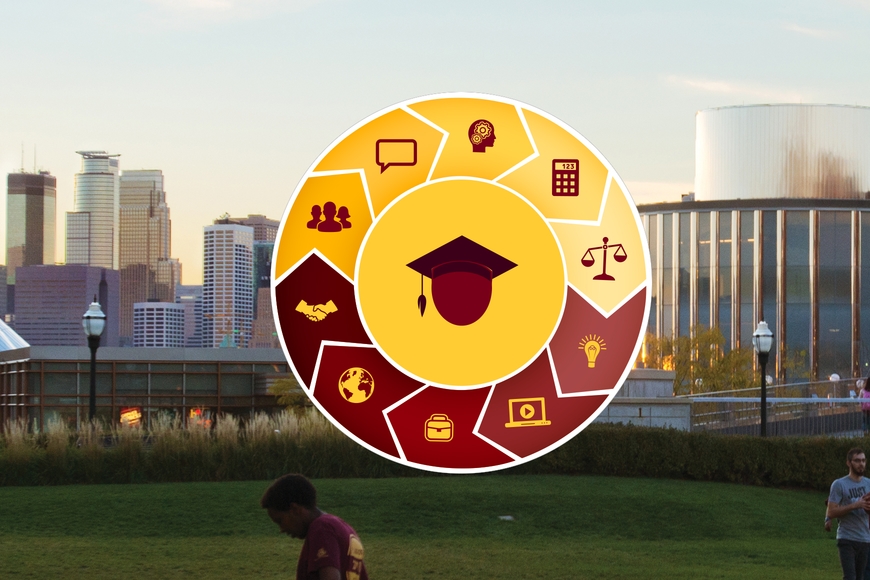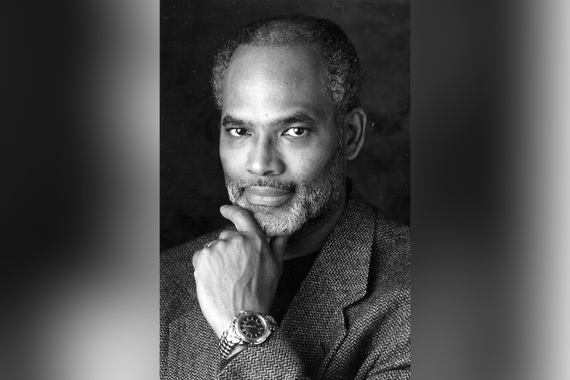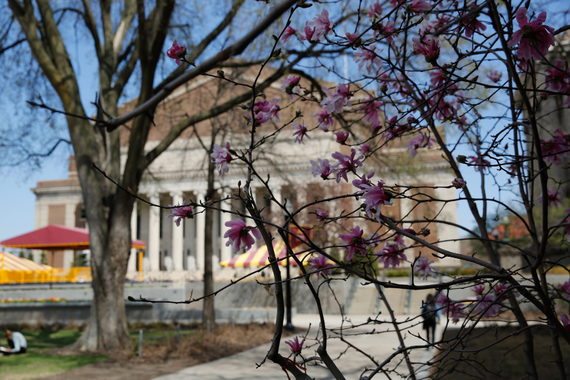Work-ready Graduates
When students get asked the inevitable question—What are you going to do with that degree in art history or linguistics?—they will be armed with a long list of job-ready skills and abilities they developed as College of Liberal Arts graduates. At least that’s the intention of CLA’s Career Readiness initiative.
Instead of measuring students’ achievements based on papers they wrote or their grades, employers will hear about how graduates learned analytical thinking, honed their leadership skills, or became creative thinkers. CLA students will draw on a new tool called RATE (Reflect Articulate Translate Evaluate) to track competencies gained from various classes and experiences, including study abroad or internships.
“Instead of asking what will be on the test, they will be asking, ‘What am I learning here that I can use in my life?’” says Ascan Koerner, associate dean for undergraduate education who heads the Career Readiness Initiative. “Then they will be better at articulating to themselves and to employers what they can bring to the table that they didn’t have before they went to college. It’s much more purposeful.”
While considering CLA students for leadership positions, recruiters from companies like Target love to hear about their experiences with teamwork and leadership. It’s not about the specific major they earned but their innovative thinking, problem-solving, and curiosity to dig deeply into issues that all come from studying the liberal arts, says Morgan Bailey, Target lead executive recruiter.
“When we’re hiring for leadership roles, we want people to come in with a creative mindset and exposure to different kinds of thinking. CLA students have so much experience in working with and leading diverse teams in the classroom and extracurricular activities,” says Bailey. “We love how they translate what they learned to their position.”
A key component of the Career Readiness initiative involves CLA faculty. It started this year with 24 faculty fellows from a broad swath of disciplines, ranging from anthropology to urban studies, who meet regularly in small groups. In addition, 52 faculty and staff from 32 departments participated in career readiness workshops.
CLA outlined 10 core competencies every graduate should gain from their liberal arts education, such as digital literacy, ethical reasoning and decision-making, and oral and written communication. The initiative encourages faculty to more overtly integrate these competencies—and discussions of them—into their classes.
The small groups of faculty fellows have been implementing their ideas for how to integrate core competencies deeper into their courses. In April, they will give presentations about these experiences. Involving faculty in this mission is a novel twist at the University and among other liberal arts schools, Koerner says.
“We’re absolutely cutting edge on this,” he adds. “We’re the only ones going full steam ahead to make it part of our teaching mission to engage with students about how a liberal arts education makes them more hirable.”



